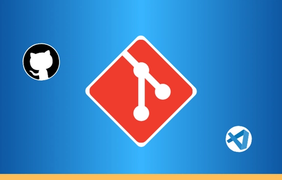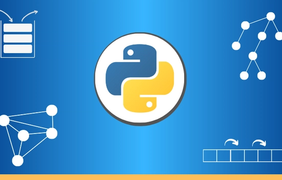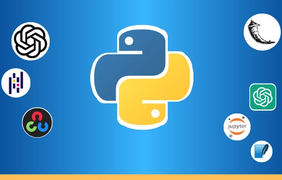Welcome to SitePoint!
Access a huge library of books and courses
On various topics: JavaScript, Python, AI, and more!
Use arrows to navigate
Browse our comprehensive collection of courses, books, and tutorials on a wide range of development and design topics.

video

video

video
·
★ 5.0
video

video

video
·
★ 4.5Browse our comprehensive collection of courses, books, and tutorials on a wide range of topics.
The home for developers



... I joined SitePoint to learn more about web stuff and their PHP/MySQL tutorial was probably the first I used.
Creator of WordPress, CEO of Automattic
Whether you’re a full-stack developer, designer, or looking to get into AI, we’ve got a path for you.

Learn JavaScript, the language of the web. Then deep dive into some popular frontend and backend JavaScript frameworks and start your Full Stack career the right way.

Learn JavaScript, the language of the web. Then deep dive into some popular frontend and backend JavaScript frameworks and start your Full Stack career the right way.

Learn JavaScript, the language of the web. Then deep dive into some popular frontend and backend JavaScript frameworks and start your Full Stack career the right way.

Learn JavaScript, the language of the web. Then deep dive into some popular frontend and backend JavaScript frameworks and start your Full Stack career the right way.

Learn JavaScript, the language of the web. Then deep dive into some popular frontend and backend JavaScript frameworks and start your Full Stack career the right way.

Learn JavaScript, the language of the web. Then deep dive into some popular frontend and backend JavaScript frameworks and start your Full Stack career the right way.
Discover our library filled with learning paths for all kinds of learners.
Browse thousands of jobs in Software Development
21h ago
About the Company Altimist is building the next-generation digital financial platform—secure, efficient, and rooted in economic freedom. By unifying finance, identity, and messaging through Web3 technology, we are eliminating the inefficiencies of traditional systems and enabling programmable trust for the 22nd century. We believe in empowerment, safety, efficiency, and transparency—and we’re here to help users navigate the future of finance with confidence. About the Role We’re looking for a highly capable Full Stack Developer to lead the buildout of our cross-platform messaging infrastructure and next-generation web experience. In this role, you'll architect and deliver secure, real-time interactions across platforms like WhatsApp, Telegram, Discord, and the Altimist web interface. You'll be responsible for connecting identity, messaging, and payments into one seamless, user-centric system. Responsibilities Messaging Platform Integration Build and maintain chat-based automation bots and interfaces for: WhatsApp (via Business API) Telegram (Bot API) Discord (custom bot and webhook integrations) Design and integrate real-time flows for end-user validation, confirmations, and alerts Enable message-triggered workflows based on user input, state, and session history Handle secure token-based verification and notification responses between frontend and messaging channels Web Infrastructure Lead redesign and implementation of a modern, responsive web experience Create conversion-focused landing and dashboard pages Build secure user flows with verified identities and smart interactions Develop responsive interfaces using modern frameworks (e.g., React, Next.js, Tailwind CSS) Connect front-end to real-time APIs and backend services for user activity, messaging, and verification triggers General Technical Scope Build and consume REST/GraphQL APIs and Webhooks Use GPT integrations or NLP assistants to enhance the user experience inside messaging flows Manage session security, structured metadata capture, and dynamic interaction logic Required Skills 4 years of full stack development experience Strong with Node.js, TypeScript, React/Next.js Experience integrating at least two of the following: WhatsApp Business API Telegram Bot API Discord bots or integrations Working knowledge of OAuth2, Webhooks, and tokenized access flows Familiar with bot rate-limiting, command parsing, and asynchronous job queues Demonstrated ability to ship secure, high-performance production systems Preferred Skills Experience with authentication flows using wallets or identity verification tools Familiarity with blockchain-based workflows and smart contract interaction Experience building web products in a privacy-first, security-conscious environment Location & Engagement On-site with negotiable flexibility Contract-to-hire Startup-grade speed and autonomy required What Success Looks Like Bots deployed and actively used across Telegram, WhatsApp, and Discord with consistent, high-quality UX Messaging interfaces communicate seamlessly with real-time backend and frontend logic Website re-launches with strong conversion flows and a user-first experience
21h ago
About the Role: We are seeking a skilled and detail-oriented Webflow Developer to bring our web development projects to life. The ideal candidate will have a strong background in Webflow development, a keen eye for design, and a passion for creating user-friendly, functional, and visually stunning websites. You will work closely with our design team to translate their creative visions into fully responsive, pixel-perfect websites, while also optimizing existing projects for performance and usability. What You'll Do: Develop responsive, pixel-perfect websites that align seamlessly with our design team’s vision. Build custom solutions using Webflow’s advanced features, including CMS, interactions, and animations. Collaborate with designers to ensure smooth implementation of UX/UI concepts. Optimize websites for performance, SEO, and cross-device compatibility. Work on multiple projects, including website optimizations and new builds. Stay up-to-date with the latest Webflow trends and best practices to push the platform’s capabilities. Requirements: 2 years of experience in Webflow development. Strong understanding of responsive design principles and cross-browser compatibility. Proficiency in HTML, CSS, and JavaScript for custom integrations. Experience translating Figma designs into functional, visually appealing websites. Familiarity with Webflow CMS, dynamic content, and advanced interactions. Ability to work within the CET timezone and stay available for collaboration during core hours. Strong problem-solving skills and meticulous attention to detail. Nice-to-Have: Experience with SEO optimization and website performance tuning. Knowledge of third-party integrations (e.g., APIs, analytics tools, payment gateways). A portfolio showcasing your Webflow projects and creative solutions. Exponential Science is an equal opportunity employer.
21h ago
A leading global systematic trading firm is looking for a highly skilled KDB Quant Developer to join its quantitative technology team. This role offers the opportunity to work in a collaborative, research-driven environment, supporting trading and research teams across London, New York, Paris, and Singapore. Key Responsibilities: Develop and enhance high-performance KDB/q infrastructure for real-time and historical market data analysis. Work closely with quants, traders, and researchers to optimize data access, analytics, and signal generation. Design and implement low-latency solutions to support systematic trading strategies. Maintain and improve large-scale tick data storage and retrieval systems. Ensure scalability and robustness of KDB systems across multiple asset classes. Key Requirements: Strong expertise in KDB/q with experience in building and optimizing large-scale databases. Familiarity with market data structures, time-series analysis, and tick data processing. Experience working in a quantitative trading, systematic investment, or hedge fund environment. Knowledge of Python or other scripting languages for integration and automation. Strong understanding of data structures, algorithms, and performance optimization. Excellent problem-solving skills and ability to work in a fast-paced environment. This is a fantastic opportunity to work with a global team of top-tier technologists and quants, leveraging cutting-edge technology to drive systematic trading strategies. If you're interested, please apply to learn more
21h ago
Mid-Level PHP Developer - OOP/SQL - Leeds City Centre (Hybrid) Salary: £40-45K DOE Location: Leeds City Centre (3 days per week) We are working with an innovative and fast-growing tech company that’s pushing boundaries in digital workflows, automation, and intelligent technology solutions. They’re a team that thrives on collaboration, problem-solving, and making an impact—and they’re now looking for a Senior PHP Developer to join the team. This is a great opportunity if you love working in a fast-paced environment, want to take ownership of your work, and enjoy seeing the real impact of what you build. What You’ll Be Doing Building and maintaining high-quality PHP applications Writing, optimising, and executing SQL queries for large datasets Supporting the full development lifecycle—design, development, testing, deployment, and maintenance Collaborating with a small but dynamic team to create scalable solutions Troubleshooting and improving existing applications to enhance performance and security What They’re Looking For You don’t need to tick every box, but if you have a mix of the following, please do apply: Experience : Commercial experience as a PHP developer Problem-Solving : Strong debugging and troubleshooting skills Collaboration : A team player who enjoys working closely with others Technical Knowledge : Hands-on experience with object-oriented PHP, SQL queries, and LAMP environments Front-End Awareness : Some familiarity with HTML5, CSS3, and JavaScript (jQuery) Security & Performance : Awareness of security risks and performance best practices Curiosity & Growth : A proactive approach to learning and staying up to date with emerging technologies What’s on Offer? A chance to work on cutting-edge solutions in an ambitious and growing tech company A collaborative team that values new ideas and innovation Hybrid working—3 days a week in the Leeds City Centre office Salary between £40-45k Opportunity to progress into more senior roles Interview Process 2 stage interview - 1st stage - initial conversation with Tech Director (online), 2nd stage - Onsite with Director and other team members This team is looking for someone who’s excited to make an impact. If that sounds like you, please apply for consideration At Noux Talent, we are committed to promoting diversity, equity, and inclusion. We connect talented individuals from all backgrounds with opportunities where they can thrive. We ensure fair and equitable consideration for all candidates, regardless of race, ethnicity, gender, age, disability, sexual orientation, or any other characteristic.
21h ago
Channel Sales Manager Wanted for a Leading Tech/Security Provider – Hybrid – Aldershot/Basingstoke/Reading/Remote The Job The company is a well-established and highly regarded market leader in innovative and emerging network, cloud and information security technologies. Working at the cutting edge of technology and consistently achieving flawless integration with their end users, this leading tech provider has been helping to de-risk, create value and maintain business transformations throughout the world. The Role With aggressive growth plans for 2025, they are now seeking a Channel Sales Manager to come on board and increase their security tech offerings, driving sales across the organisation. As a Channel Sales Manager you will be expected to lead and coach a team of 5, hold regular pipeline review meetings, ensure targets are tracked against KPIs whilst continually improving strategies and procedures to progress the team performance year on year. They would consider anyone from a tech sales background for this role (Software/Hardware/Networking/Cloud and so on), or an individual that has come from another security provider that wants to continue developing their career in cyber security, What’s in it for you? Competitive salary with pension, uncapped commission and bonus scheme A future with a leading tech/security provider where you can have an influential say with the board Ownership of your own team A vibrant company culture with quarterly and annual outings Flexible/remote working This business moves very quickly with interviews, so please hit the “Apply” button now to register your interest. Channel Manager SalesManager IT Tech Security Cloud SaaS Sales Hiring Berkshire Surrey Hampshire
21h ago
1st Line Network Engineer Guildford Hybrid (2/3 times in office per week) £30,000 - £36,000 Benefits package Are you a passionate and driven network engineer looking to grow your career? Our client is looking for a 1st Line Network Engineer to join their team, supporting and maintaining cutting-edge network infrastructure. Provide 1st line network support – configuring and troubleshooting routers, switches, firewalls, VPNs, and more. Monitor system performance, ensuring high availability and reliability. Take ownership of support tickets, working towards swift and effective resolutions. Assist in network maintenance and upgrades, including security patches and updates. Support the design and implementation of scalable and secure network solutions. SKILLS NEEDED At least three years’ experience delivering Fortinet/Cisco and or Juniper Wan and Lan Solutions CCNA Certified Have PRTG and Visio experience Experience trouble shooting OSPF and BGP WANs Designing and planning and implementing network systems experience – (simple designs – drawing Visio diagrams of single or two circuit deployments – very basic) . .
Stay sharp with the latest updates in tech industry!

Published in
···March 20, 2025

Published in
···March 19, 2025

Published in
··March 18, 2025

Published in
····March 13, 2025
Discover a world of insights - browse our complete collection of articles in one place!
gjd
168
an hour ago
41
jcmcobra
17
3 hours ago
2
810311
70
10 hours ago
8
Corobori
37
12 hours ago
4
hack3rcon
32
13 hours ago
6
Jack_Tauson_Sr
39
14 hours ago
6
We Develop Elite Developers
7 Day Free Trial. Cancel Anytime.


